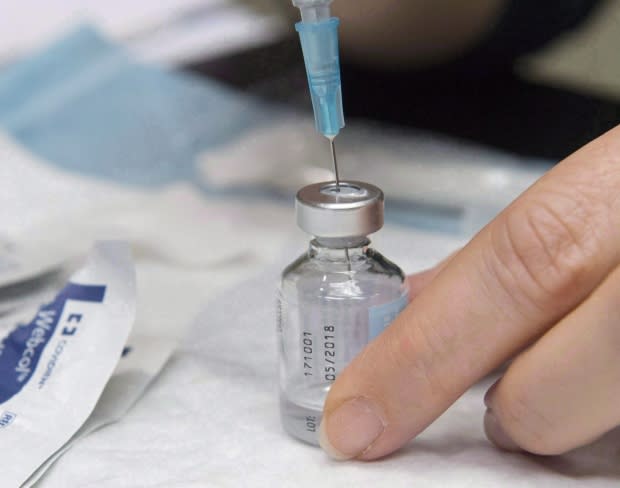10 ex-Ontario health ministers issue joint letter decrying 'attack on public health'
Ten former Ontario health ministers from across the political spectrum have taken the rare step of sending a joint letter to the provincial government, imploring it to reverse millions of dollars in public health cuts they say put the province "at risk."
The letter, sent to Health Minister Christine Elliott on Thursday morning, was signed by:
Dennis Timbrell (PCs).
Three NDP ministers from the Bob Rae government: Ruth Grier, Evelyn Gigantes and Sen. Frances Lankin.
Six former Liberal ministers: Dr. Helena Jaczek, Dr. Eric Hoskins, who served in the Kathleen Wynne government, former deputy premier Deb Matthews, and David Caplan, Elinor Caplan and George Smitherman.
"Traditionally, Ministers of Health have avoided commenting on the policies of their successors," it reads.
"Health has been seen as a non-partisan issue — something we all support. This attack on public health has prompted us to break our silence."
The group is calling for the province to restore funding to ensure that public health units can continue to deliver essential services, such as monitoring drinking water quality and providing vaccinations.
Premier Doug Ford's government recently notified municipal public health units that it will reduce its cost-sharing levels from 100 per cent to 60 to 70 per cent for some municipalities, and 50 per cent for Toronto. It says the cuts will save Ontario $200 million per year by 2021-22.
The plans also include consolidating the number of public health units in Ontario from 35 to 10.
Helena Jaczek, who served as minister of health in the cabinet of former Liberal premier Kathleen Wynne and as chief medical officer of health in York Region for 18 years, said at a morning news conference that the cuts could risk a repeat of the 2000 Walkerton water crisis, or the 2003 SARS outbreak in Toronto.
"When public health has been cut in the past, tragedies have occurred," Jaczek, a signatory of the letter, told reporters at Queen's Park.
"It is an absolutely vital linchpin in this system for the health of Ontarians."

For Toronto, the cuts amount to a loss of $1 billion in funding over the next decade, according to Joe Cressy, a city councillor and chair of the city's board of health — though the province disputes that figure.
Speaking next to Jaczek, Cressy said the province's changes will ultimately hamper its promise to remedy other problems in the health care system.
"It's not rocket science. If you are interested in ending hallway health care, cutting public health is the worst way to do it," he said.
That 10 former ministers of different political stripes would come together as part of Thursday's letter is "unprecedented," he said.
"Rarely do you see former health ministers oppose a sitting minister, because health care has rarely been seen as a partisan issue," he said, adding the letter should be "a wake-up call."
"This government has clearly crossed a line."
In a series of tweets after the news conference, Elliott pointed to a 2017 report from the province's auditor general that found considerable problems with how public health units co-ordinate research and services with one another and with other municipal entities, such as school boards.
"Instead of resorting to scare tactics, we can all deliver public health more efficiently while protecting and improving vital programs," Elliott wrote.
Union-commissioned poll finds strong opposition
Since details of the cuts were revealed shortly before the Easter long weekend, concern has mounted over who might be hardest hit as a result. Toronto's public health agency spends $14 million on school nutrition programs that serve 200,000 children each year, for example.
That concern is borne out in a recent poll by Environics Research, in which 70 per cent of those surveyed said they "strongly opposed" the government's plans. The strongest opposition was in Toronto, where eight out of 10 respondents were against the cuts, the poll suggested.
It was commissioned by CUPE Ontario and CUPE Local 79, which represents about 20,000 City of Toronto workers, and surveyed the opinions of 1,332 by phone from May 14 to 16.
A spokesperson for the health minister dismissed the poll's results, saying "the accuracy of any poll paid for by CUPE, a union that has publicly announced its political bias against our government, should be seriously questioned and discounted."

